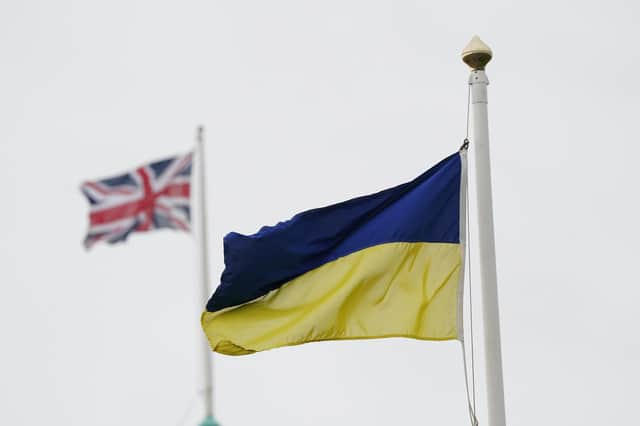More refugees due to stay in Aberdeenshire arrive in UK


Since Russia's invasion of Ukraine in March, refugees from the war have been invited to stay in the UK under the Ukrainian Sponsorship and Family schemes.
The former sets up refugees with hosts in the UK for an initial six months, who receive support from their local council and a stipend of £350.
Advertisement
Hide AdAdvertisement
Hide AdNew figures from the Department for Levelling Up, Housing and Communities show 185 Ukrainian refugee households due in Aberdeenshire – from 240 successful applications – had arrived in the UK by October 4 under the sponsorship scheme.
This was up from 160 arrivals on September 6, when 234 visas had been issued.
The Scottish government has further sponsored individuals directly through its 'super-sponsor' scheme, which has seen 30,520 visas issued to individuals without a named sponsor in Scotland, of which 16,369 had arrived by October 4.
In July the government announced a 'temporary operational pause' on new applications to the scheme.
In the month to October 4 96,800 refugees had arrived in the UK, with 136,600 visas approved under the scheme.
Some charities have expressed concern that mounting pressure on host families due to the cost-of-living crisis, and the initial six-month hosting period coming to an end, could lead to refugees becoming homeless this winter
While data has not yet been published for Scotland, new figures show the number of homeless refugee households in England increased by 22% to 1,915 in the month to September 23, across both schemes.
Stan Benes, a trustee for Opora, a charity which helps Ukrainians settling in the UK, said that support from Westminster has "too often fallen short", and that charities and other organisations have been left to fill in the gaps.
Advertisement
Hide AdAdvertisement
Hide AdHe said the cost-of-living crisis was a "factor", but that the lead reason for hosting arrangements breaking down was "the health of the relationship between guests and hosts", adding that many hosts did not have sufficient guidance or support when signing up to the scheme.
In September, First Minister Nicola Sturgeon announced an additional £50m fund to help house refugees.